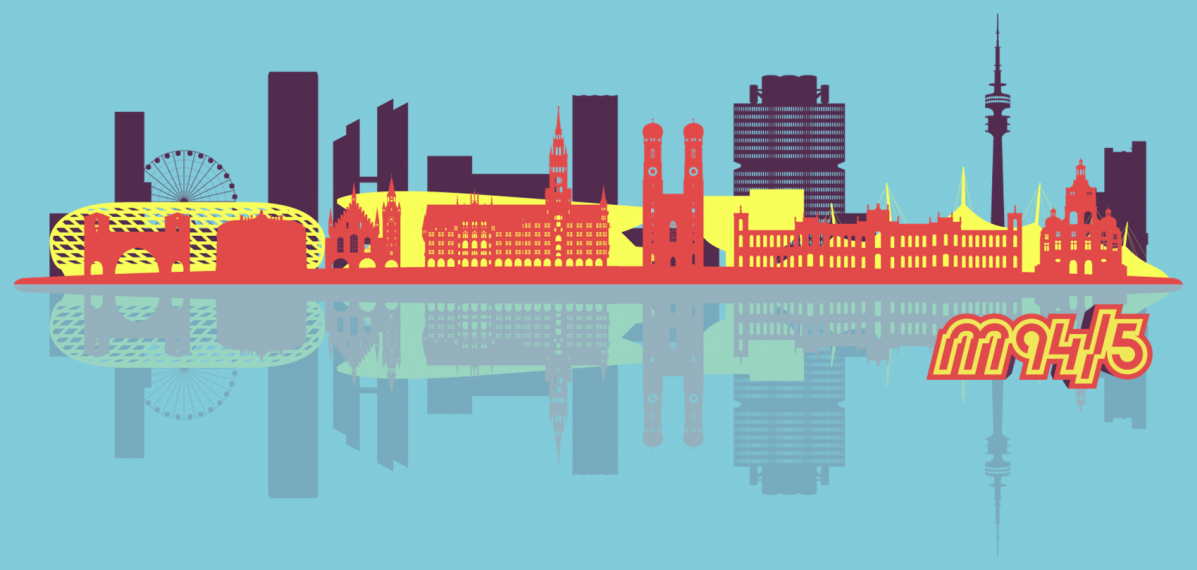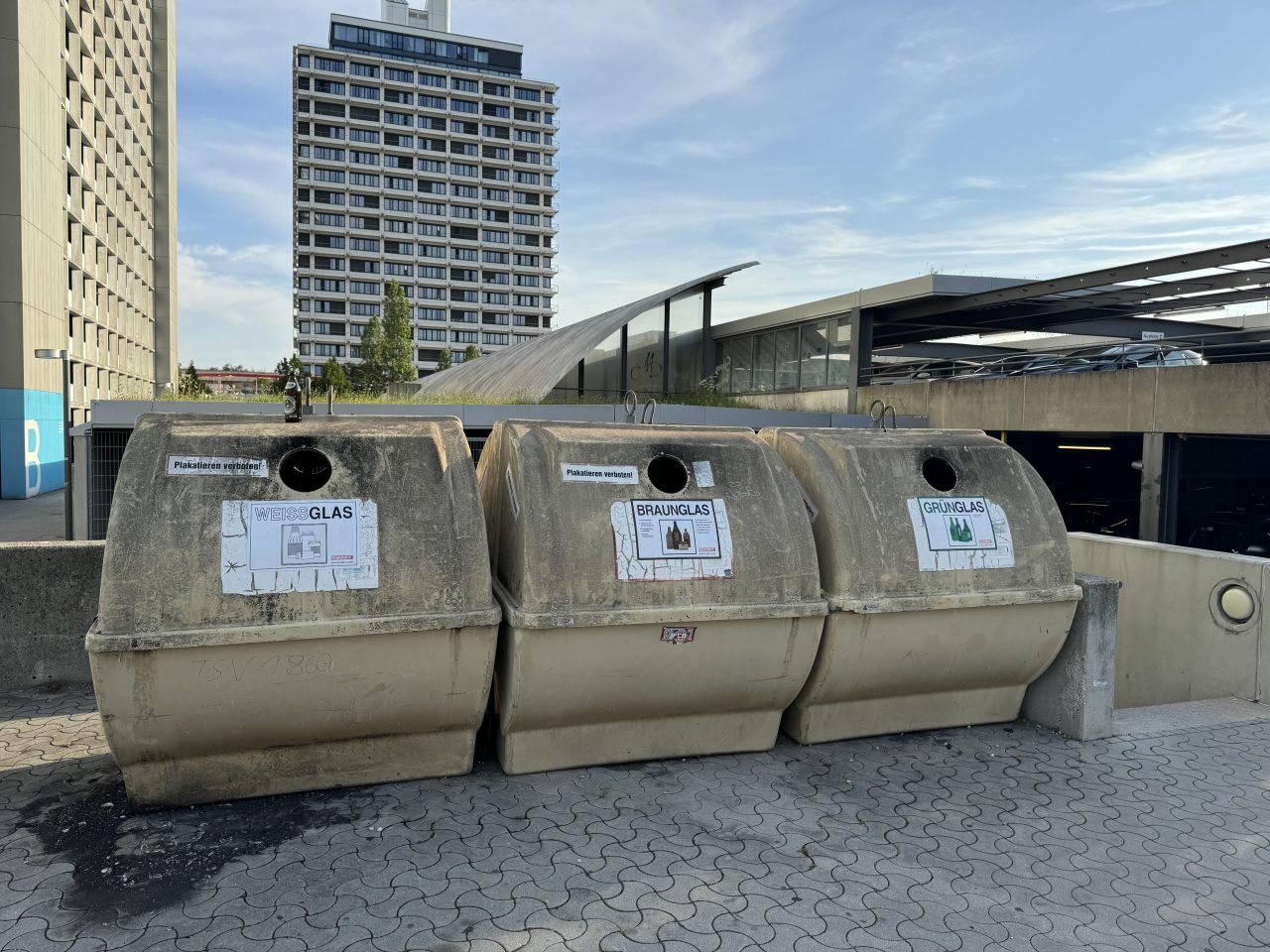
Prespective from an American born Student Intern
Rethinking Recycling: A model for a Greener America
Created by: Logan Nunery
Germany has paved a new way for waste management, other countries like the United States of America are falling behind. As countries develop similar waste management systems like Germany’s, what else can be done to further strengthen the environment?
A new way
Germany has paved the way for a new, consistent method of managing and organizing waste. Germany leads all other countries in the world in recycling; it was estimated that in 2023, Germany recycled up to 66.1% of all municipal waste. In comparison, the United States of America had a recycling rate of approximately 32% in 2023. Although both countries have functional recycling systems, Germany’s is significantly more efficient and evolved. However, this was not always the case for Germany.
Germany first began making strides towards recycling efficiency in 1991 when the government enacted The German Packaging Act. This legislation required manufacturers and distributors to ensure that packaging was either returned or recycled. This applied to both commercial and domestic goods.
The Closed Substance Cycle and Waste Management Act, signed into law by the German government, further changed the responsibilities of producers. They were now responsible for the avoidance, recycling, reuse, and proper disposal of any waste. In practice, this meant that products had to be designed to be more recyclable, with the goal of making the production process as waste-free as possible. The act emphasized the recovery of waste to prevent resource wastage and mandated environmentally friendly waste disposal methods.
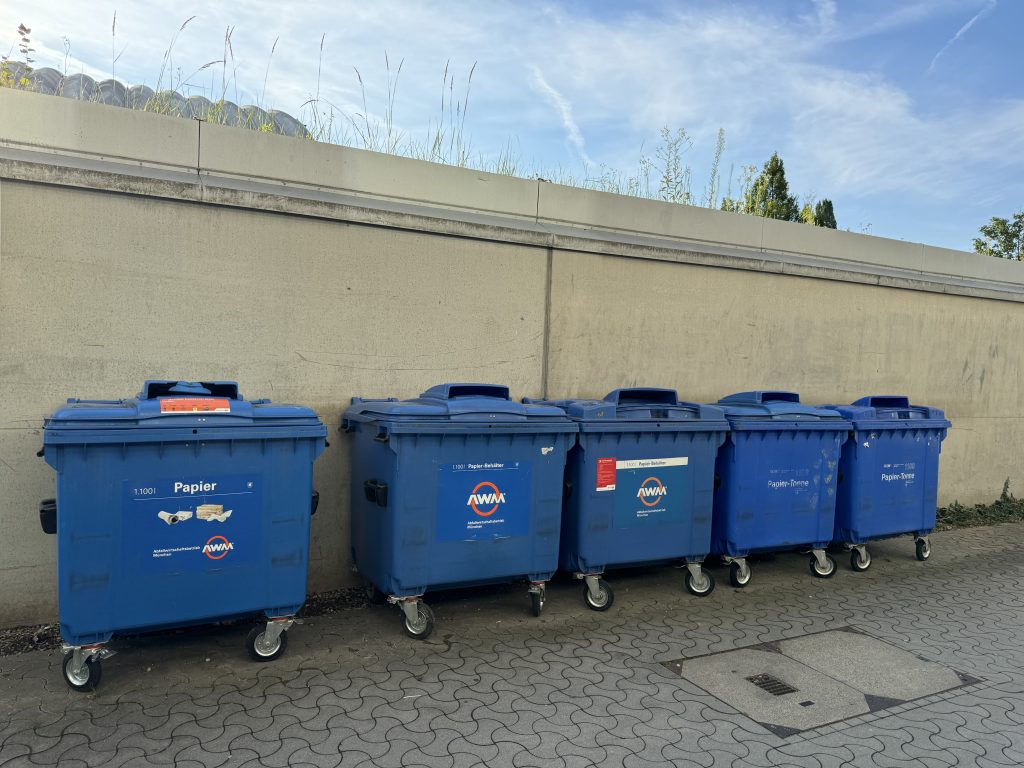
How did Germany get here?
Germany achieved a recycling rate of 66.1% through a combination of government policies, cultural attitudes, and effective education. The German culture has been particularly adamant about recycling and the importance of educating its citizens on the matter. One significant initiative by the German government was the introduction of the “Pfand” system, which involves a deposit refund scheme for certain glass and plastic bottles. Consumers pay a small deposit when purchasing these bottles, which is refunded upon returning them, usually amounting to 0.25 euros or less. This system encourages the return and proper recycling of waste.
Additionally, Germany implemented a multi-bin system to facilitate easy adjustment for residents to the new recycling protocols. For instance, there are separate bins for paper, glass, biowaste, and other miscellaneous waste. Special bins are also provided for specific items such as electronics and lithium-ion batteries, ensuring these items are recycled correctly.
In contrast, the recycling process in the United States has not been as smooth. There is no federal oversight or funding for recycling programs, making the implementation and education of recycling practices a statelevel responsibility. Some states have adopted legislation like Germany’s “Pfand” system. For example, California, Michigan, and Oregon have implemented deposit refund systems, which have led to increased recycling rates in these states compared to those without such systems.
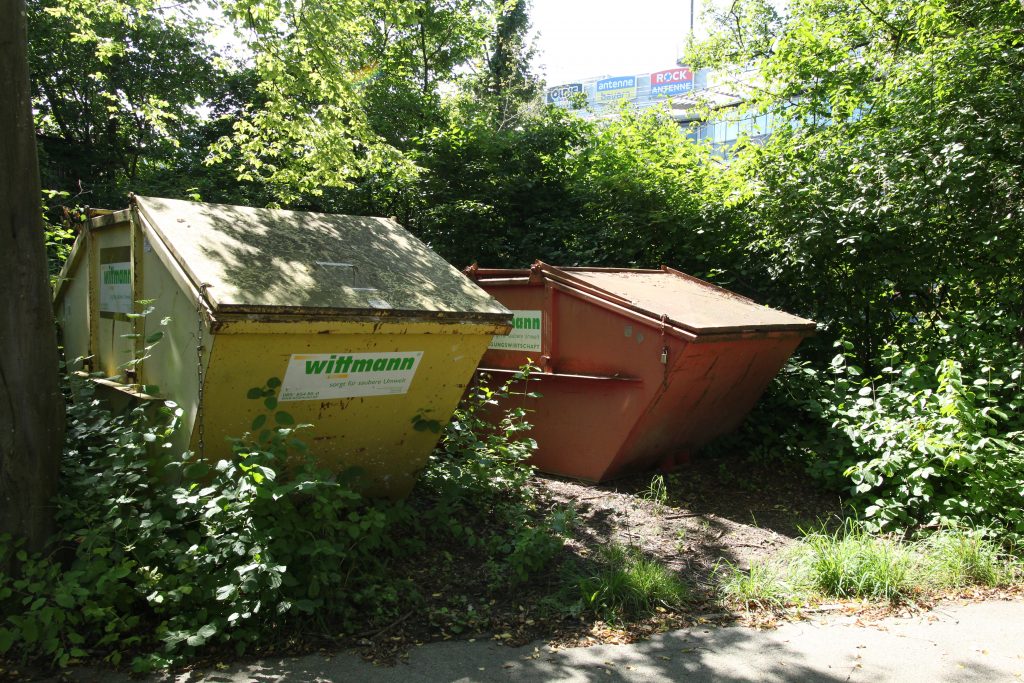
Leading by example
Very few cities in the USA have taken as much initiative to be environmentally friendly as Seattle. This Pacific Northwest city is an economic powerhouse and a vital port of trade in the United States. Recycling in Seattle is heavily regulated and managed by city officials. Seattle city officials introduced bills 21.36.083 – Residential recycling required and 21.36.082 – Commercial recycling required It is illegal not to recycle, and you can be fined for failing to do so. For example, paper towels, napkins, and cardboard must be composted and cannot be thrown away. The same principle applies to paper, uncontaminated cardboard, bottles, cups, jars, and cans, all of which must be recycled. This led to Seattle recycling over 52.7% of its waste in 2021. That puts Seattle among the top three cities in the United States for recycling, alongside Los Angeles, which had a 76.4% recycling rate in 2021, and San Francisco, which achieved an 80% recycling rate in 2021. In this context, the United States has some of the most recycling-friendly cities in the world, though it still has a low national average compared to countries like Germany

From my experiences in Seattle, it was clean, and I enjoyed seeing the fruits of a community driven effort like in Munich, of keeping the city greener and less trash. Here with me is a resident and friend of mine named Jayne that lives In Seattle, Washington with her opinion on if they think Seattle is a clean city, if the recycling benefits are working, and if it’s easy to use.
“Enforced recycling has generally improved my time in Seattle, but
“Jayne” Resident of Seattle Washington, USA.
with some caveats. Public recycling is much easier to find than anywhere
else I’ve lived, so the most common recyclables (bottles and cans) are
easily recycled and keep the streets just a bit cleaner. Seattle’s home
recycling program is a bit of a hassle, as they don’t “recycle by the
numbers” and instead have a website where you can look up common
wastes to see how to dispose of them. This makes “on boarding” to the
recycling process harder, but is an improvement, as I know what I put in the
recycling is actually getting recycled and isn’t contaminating other potential
items.”
Adjusting to change
When people first move to Germany to study, work, or even travel they often find it hard to get adjusted to the new waste management system. It is not uncommon at all for your neighbors to ask you to re-organize your trash collection if they know your trash was incorrectly stored. Some people think they’re being mean, but they’re just trying to maintain the same practices that have helped improve their lives and communities for the better. I spoke with my uncle Alex, a German Citizen and Munich resident. He first moved to Munich six years ago but was born and raised in the United States of America. We spoke about what it was like getting adjusted to the new recycling methods of Germany when he first moved here and why he thinks the German system is superior but still had some disadvantages.
“As someone who has lived with both systems for at least 5 years,
“Alex” Resident of Munich, Germany.
there are some notable differences, which are mostly advantages to the
German system, but also some disadvantages. The main reason the US
does not have something that functions as well is because it’s voluntary
and inconvenient. In Germany, All of the bins are placed together, so I have all the types
of recycling available at one spot. Most also have a clothes donation as
well. If the US would adopt the German system, I’d like to see them
providing bins to every household and making the effort needed as small
as possible. The German system can also be confusing, for example, there is a
bin for metal, but actually on cans and small items, if you have iron or steel,
it needs to go to the recycling center which requires a car. So, faults and
issues on both sides, and of course there’s the question of how we are
handling plastics globally in the first place, but the German system at least
feels like I’m reducing my footprint.”
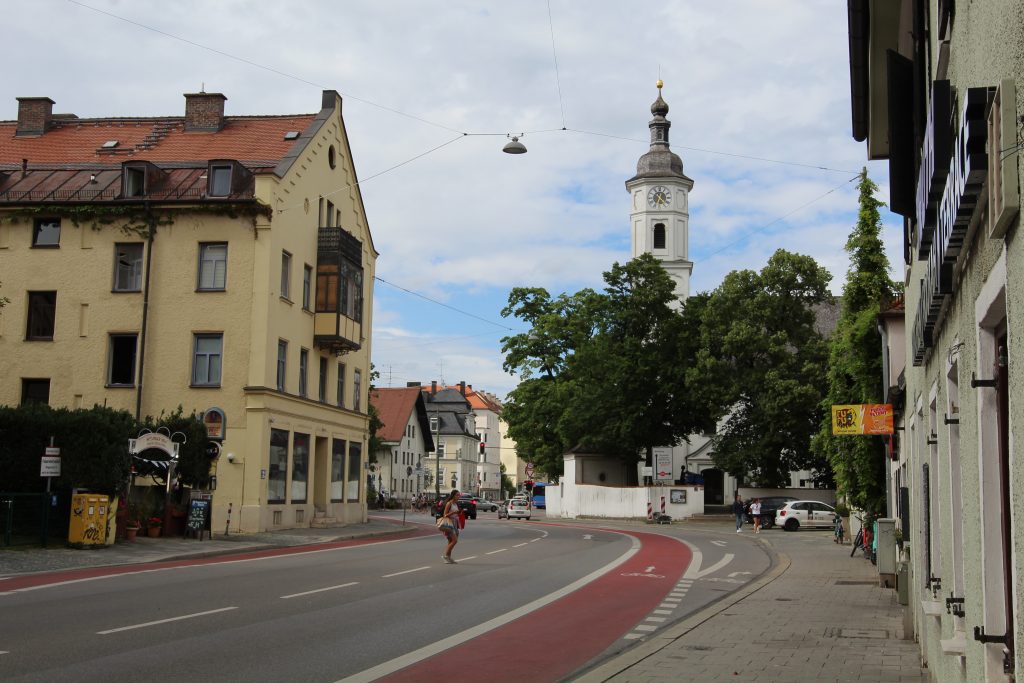
If you decide to walk the streets of Munich, it’s apparent that the residents of Munich take pride in recycling and waste management. Even if there is some trash, that’s to be expected and It’s still significantly less. Even compared to a green city like Seattle. A slight difference I’ve noticed in my
short time in Munich is that there is an honor system of sorts that I previously mentioned with the “Pfand” method. If you are walking the streets with a drink and finish it and don’t want to leave the bottle in the incorrect trash area, then you can just set it on the ground next to that trash area and it’s almost guaranteed that someone will come by and pick it up to get a “Pfand” deposit back.
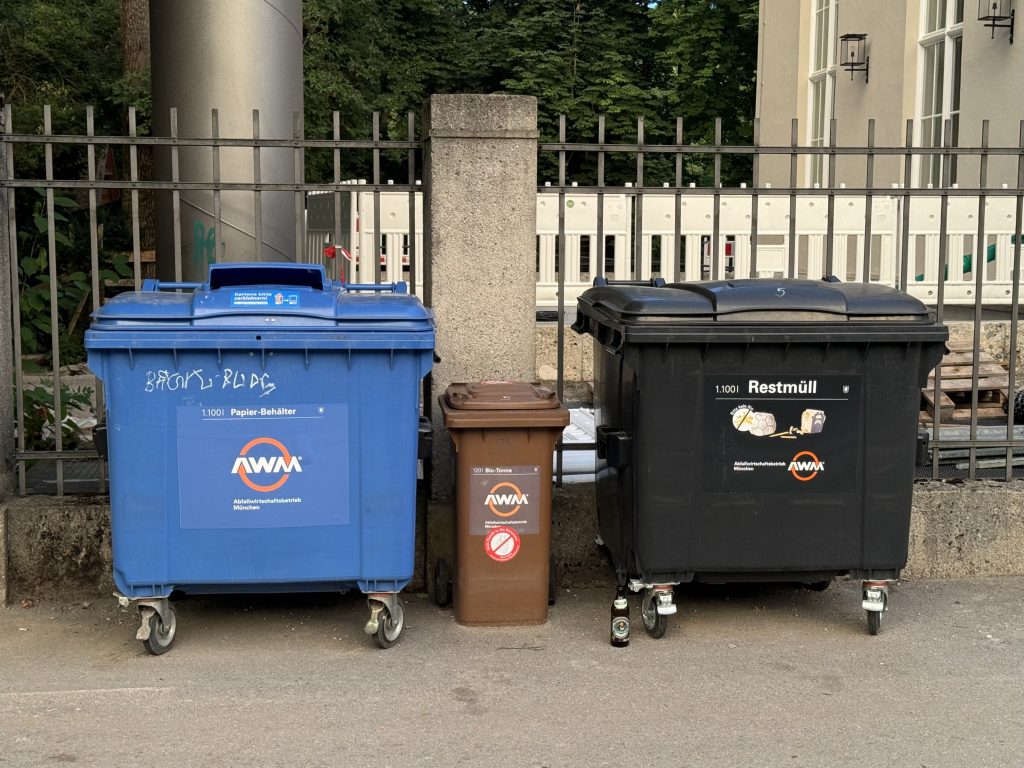
The United States and the global community could learn from how Germany has evolved its recycling methods. It’s important to remember that Germany didn’t achieve this overnight. It took generations of education and strong initiatives to change the way goods were produced. Initially, there were many setbacks, but over time, both the residents and businesses of Germany have experienced the long-term benefits of these practices. This is something the United States could consider for the future as they formulate ways to tackle climate change.



